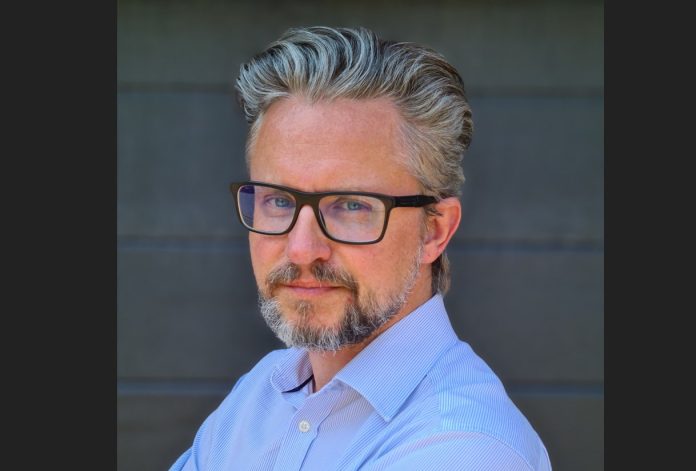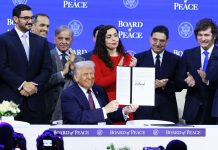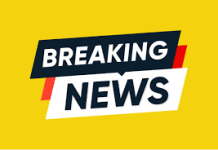Ruslanas Iržikevičius
The German word “Zeitenwende” perfectly reflects the year 2022. This year is only halfway through, but it marks a turning point in the post-Cold War era. The end of the Cold War led to the creation of Kazakhstan, and the referendum that took place on 5 June was the day that gave birth to the New Kazakhstan. The real “Zeitenwende” is a turning point in time. Why is this referendum important for Kazakhstan, the region, and us?
It is no secret that the collapse of the Soviet Union was an unexpected event for most Soviet republics. Many of the newly created states in the post-Soviet space needed to reinvent themselves. In 1861, after the proclamation of the Kingdom of Italy, a wise Italian said ‘”We have created Italy; now we must create the Italians.” Thirty years ago, Kazakhstan was created. A country that was concerned about how to preserve and strengthen its borders, how to build its national economy, and how to embed the republic in the world diplomatic system. Although the fate of the Soviet Union was also prophesied for Kazakhstan, those prophecies did not come true. Mission accomplished.
The ninth largest country in the world has created an economy within its own borders, with a gross domestic product per capita that is expected to surpass that of the Russian Federation later this year. Kazakhs do not go to Russia to work to the same extent as people in surrounding countries. Kazakhstan’s economy is larger than that of all the other post-Soviet Central Asian republics put together. And Kazakhstan‘s multi-vector diplomacy has meant that the country has good relations with its neighbours and most countries.
The relatively stable economic and political situation has changed the country’s demographics: over 50% of Kazakhs were born after independence. In the context of the region, this may not be unique. However, Kazakhstan was different from other countries in the region in terms of strategic forward planning and investing in its young people. President Nursultan Nazarbayev created a programme that allowed the brightest Kazakh children to study at the best universities in the West, thus contributing to the birth of a new and modern elite. The impression was that the country was developing, had discovered its own model of success, and would continue to move forward on its chosen path of economic consolidation for a long time to come.
Especially after the first president of the republic, Mr Nazarbayev, peacefully handed over the helm of power not to a member of his family or clan but to a diplomat and politician, Mr Kassym Tokayev, who speaks not only Kazakh and Russian, but also English, French, and even Chinese.
The country’s stable economic development has raised a generation of Kazakhs who feel that they need more than a stable economy. The growing inequalities and the innumerable riches of the “chosen few” (mostly belonging to President Nazarbayev’s clan) were an eyesore. It was pretty clear that change was needed, a modernisation of the country’s governance. In 2019, the country’s new President started reforms: he lowered the number of signatures for registering political parties and the barrier to their entry into the Mazhilis (Parliament) from 7% to 5%. He legalised the opposition in the Mazhilis, direct mayoral elections, and expanded freedoms of assembly and demonstration.
For some, these reforms were too slow; for others, they were too much and too fast. The rise in the price of liquefied petroleum gas was the last straw in the cup of patience for the wealth inequality of ordinary Kazakhs. In early January 2022, peaceful protests that began in the country’s West spread throughout basically all of Kazakhstan. What started as peaceful protests turned into riots. A state of emergency was imposed, and the Russian-dominated Collective Security Treaty Organisation (CSTO) was called in. The riots were quelled, the protests ended, and the 2050 CSTO troops left Kazakhstan on 19 January without having fired a shot.
The state of emergency was lifted, but Kazakhs still find it hard to believe that this could happen in their country. Some 238 people were killed, including 19 officials. The mayors’ offices, other government buildings, as well as shops were on fire. It is difficult to comment on this because the Kazakhs themselves are still in the process of search. Officials keep mentioning extremists and criminal and terrorist organisations. There were undoubtedly such people among the rioters. However, in my opinion, the unrest was organised by those who wanted to exploit the peaceful protests to turn the clock on change and return to the 2019 status quo. And the change is complete to the disadvantage of the political and economic establishment, which has been unwilling to give up its levers of influence and share its wealth. I do not think that former President Nazarbayev was behind them. Still, they were probably people who wanted to preserve the state governance system established during Nazarbayev’s presidency.
When the bloody unrest broke out, the security structures, dominated by the old clans, delayed carrying out their duties, thus allowing the unrest to spread rapidly throughout the country. The inviting of the CSTO-dominated forces of the Russian Federation to help was, in my opinion, a clever manoeuvre by President Tokayev. This wise move: showing initiative by involving the Russian Federation in managing the January events under the framework of the CSTO. By doing this, President Tokayev made it difficult for the Kremlin to support Nazarbayev’s clan actively.
The Kazakhs constantly emphasise that the CSTO is made up of six countries, of which Russia is only one. However, no matter how many members there are, everyone knows which country has the final say in the organisation. Yes, it was very risky, but it worked for the Kazakh Government, and this manoeuvre has succeeded, at least so far. Against the backdrop of Russia’s current aggression against Ukraine, many in Kazakhstan are well aware that, after the “January events”, Kazakhstan has been given a little more time to consolidate its independence further. They also understand that only a modern country will be able to stand up to Russian and Chinese pressure in the very near future. Only a modern country will be much more attractive to the West and will open up many more opportunities to continue the multi-vector diplomacy that has served Kazakhstan well so far. On the other hand, Russia also understands that modern Kazakhstan is not a welcome development for it. And the Kremlin will try to do its best to derail the modernisation of Kazakhstan.
A journalist from the Russian Federation asked a senior Kazakh official whether the aims of this referendum do not remind them of the Perestroika, and we all remember very well what happened to the country that tried to implement it. The answer was a perfect reflection of Kazakhstan’s current multi-vector diplomacy. According to the official, Kazakhstan has already been on the road to reform since 2019. It is done step-by-step and, most importantly, in the context of a change in the consciousness and mentality of our society.
The absolute majority is already ready for even more significant reforms, and Kazakhstan has the economic basis for such reforms. Finally, he mentioned that most of the amendments to the Constitution are present in the Constitution of the Russian Federation, so, you see, we are just trying to catch up with you now. You, the Russian Federation, really have nothing to fear.
The sheep stay healthy, and the wolf is full, as we say in Lithuania. Of course, the ninth largest country in the world does not pretend to be a “sheep”. But you have to remember that Kazakhstan, a territory the size of Western Europe, has almost as many inhabitants as the Netherlands, which is half the size of Lithuania. And Kazakhstan’s border with Russia is the second-longest land border in the world. It may not be an appropriate comparison, but the behaviour of the Kazakhs reminds me in many ways of the behaviour of the Finns, who have the longest land border with Russia in the European Union. Before Russia’s aggression against Ukraine, there was a lot of talk about the need for friendship and trade with neighbours. But subconsciously, the Finns knew exactly what they were dealing with and kept their true feelings towards the Russian Federation to themselves. With the Russian Federation’s war against Ukraine outbreak, these true feelings have come out into the open, and the Finns are already applying to join NATO.
Of course, it is difficult to deny that the influence of the Russian Federation is felt in Kazakhstan. To begin with, the political elite often communicates among themselves in Russian, and in general, Russian is still the Franca lingua of many Kazakhs. But the importance and influence of the Kazakh language is growing all the time, and the Kazakhs are seriously engaged in creating their own historical narrative. Yes, there is influence from the north, but I did not sense there being any pride about it. On the contrary, I felt that careful steps were being taken to get rid of this legacy.
An intern at the Ministry of Foreign Affairs of Kazakstan asked me what Lithuania would do if it were geographically in Kazakhstan’s place. It is a wonderful question to which there is no answer. Still, this question perfectly reflects Kazakhstan’s situation. We in Lithuania should be more careful about throwing out epithets such as “Kazakhstan is a perpetual ally of Russia, and it will always be that way.” Kazakhstan is a neighbour of Russia, which is very aware that it has one of the longest land borders in the world and cherishes its independence and is trying to preserve it. That is my impression, and that is the message I heard during my visit to this country.
The events of January could have been the beginning of the end of the modernisation of Kazakhstan. Instead, the organisers of the unrest were probably hoping that President Tokayev’s administration would resort to repressions and would go into reverse gear. The reforms will fail, and then it is only a matter of time before Tokayev’s presidency comes to an end.
The opposite has happened, and it has been decided to accelerate the reforms. It was agreed that the time had come for a New Kazakhstan and the Second Republic. On 16 March, President Tokayev announced the creation of the New Kazakhstan and a referendum. On 5 June, the referendum will ask voters whether they agree with the changes to the Constitution of Kazakhstan. One-third of the articles of the Constitution will be amended, and two new articles will be added.
On political reforms, President Tokayev noted that the reforms and changes to be implemented include transitioning from a super-presidential form of government to a presidential republic with a strong parliament. Such a system will provide an optimal balance of power for institutions and contribute to the country’s sustainable development.
Legislation that obliges the President to terminate membership in the party for the period of his powers will also be included. This norm will increase political competition and provide equal conditions for the development of all parties. Furthermore, it was proposed legally prohibit akims (governours and mayors) and their deputies from holding positions in party branches. Such decisions will enhance a multiparty system. Also, a legislative ban for the closest relatives of the President from holding positions of top-level civil servants and managers in the quasipublic sector. Provisions to increase the independence of governors will be there. For example, currently, the President has the right to dismiss district and rural akims. Such legal provisions should be abolished.
Another significant change will be in procedures for registration of political parties that will be greatly simplified. For example, the registration threshold will be reduced from 20,000 to 5,000 people – a fourfold reduction (eightfold over since 2019!), in regional branches – from 600 to 200 people. In addition, the rights and obligations of observers of electoral legislation should be clearly defined.
The establishment of a Constitutional Court is another important milestone. The Prosecutor General and the Commissioner for Human Rights will be given the right to appeal to the Court, the President and the Parliament. Furthermore, specific reforms in the parliamentary and local government system are there. These include reducing the quota for presidential appointments in the Senate from 15 to 10 members to give more voice to social groups under-represented in Parliament.
The Assembly of the People of Kazakhstan quota in the Mazhilis (the Parliament) will be abolished to reflect the more parliamentary powers. This quota is transferred to the Senate and reduced from 9 to 5 members. Accordingly, the total number of deputy seats in the Mazhilis will decrease. The Assembly is a constitutional body that is designed to represent the interests of numerous ethnic communities of the nations. The right of the Senate should only be to approve or reject the laws already adopted by the Mazhilis. Consequently, the Mazhilis is vested with the right to pass laws.
Parliament should strengthen control over the quality of execution of the state budget. The Supreme Accounts Chamber will be created instead of the Accounts Committee for Control over the Execution of the National Budget. The system of election of deputies of the Majilis will be reformed the following way: 70% of MPs will be elected on a proportional basis, while 30% will be elected on a majoritarian basis. In addition, a mixed model will be introduced in the elections of maslikhats (local Parliament) of regions and cities of national significance. This will pave the way for individual non-party candidates to run for a seat in the Parliament and increase political competition and the citizens’ direct engagement with their elected MPs.
Additional reforms and revisions of the law “On Mass Media” will be implemented. The vision is that the media should have opportunities to be more competitive and independent.
The article of the Constitution states that land and wealth belonging to the state is replaced by land and wealth belonging to the people. Institutes will also be set up to audit Kazakhstan’s assets inside and outside the country. I believe this is one of the key changes that will determine the success of Kazakhstan’s modernisation. And this success is very important for us. Why?
Perhaps we should start by saying that we, as a country that wants as many countries in the world as possible to follow the path of democracy, have a vested interest in seeing Kazakhstan succeed. We, Lithuania, no longer need to convince the Kazakh establishment of the advantages and benefits of democracy. Kazakhstan has decided to reform, not because there is any European perspective, but because they are well aware of the importance and benefits of this path. They are doing it “for themselves” and not “for Brussels”, not to score points. Therefore, we, Lithuania, have a unique opportunity to contribute to the success story of this country. We ourselves are a success story. The Kazakhs remember us, know us and know Lithuania, and want to communicate with us. It may sound a bit cliché, but we have the opportunity to become Kazakhstan’s advocate and bridge to the West.
If Kazakhstan succeeds in reforming the country, it will hugely impact the whole Central Asian region. It will also have an impact on Russia. This is because the more reformed and modern Kazakhstan, Russia and other autocratic states have less influence on it.
This is very important because we need to consider Kazakhstan’s enormous economic potential. In terms of area, Kazakhstan has vast arable land (sixth in the world), deposits of 99 of the 105 elements on the periodic table, and the world’s second-largest uranium reserves. The World Bank estimates that Kazakhstan’s deposits contain mineral resources worth USD 46 trillion. It is in Lithuania’s interest to make this country as modern and democratic as possible. Because, as we have seen time and again, it is not viable to do business with authoritarian states, but it is beneficial to trade with modern countries.
Kazakhstan’s Zeitenwende is unique: in the referendum on 5 June, 77% of the voters decided that Kazakhstan must change and turn towards modernisation. The ambitions and goals are huge, and these goals are in the direction for which we, Lithuania, have been fighting for thirty years. As a result, we have become a success story for the world and share this success with others. After announcing the results of the referendum, I have often heard that this is only the beginning of the road, the beginning of the New Kazakhstan, the Second Republic. They understand that the road will be long and winding, but the Kazakhs are determined to start this journey, and we in the West must support them as much as we can along the way. A wise Kazakh told me: my dad used to tell me that if you want to achieve something, you have to stand up and start acting. And then half the job is done. The Kazakhs, having strengthened themselves economically, stood up. Thus a new political nation was born. It is up to this nation to pass this test, and it is up to us to wish them well and, if necessary, to stand by them and support them.
Ruslanas Iržikevičius is the Editor-in-Chief of Lithuania Tribune.

















